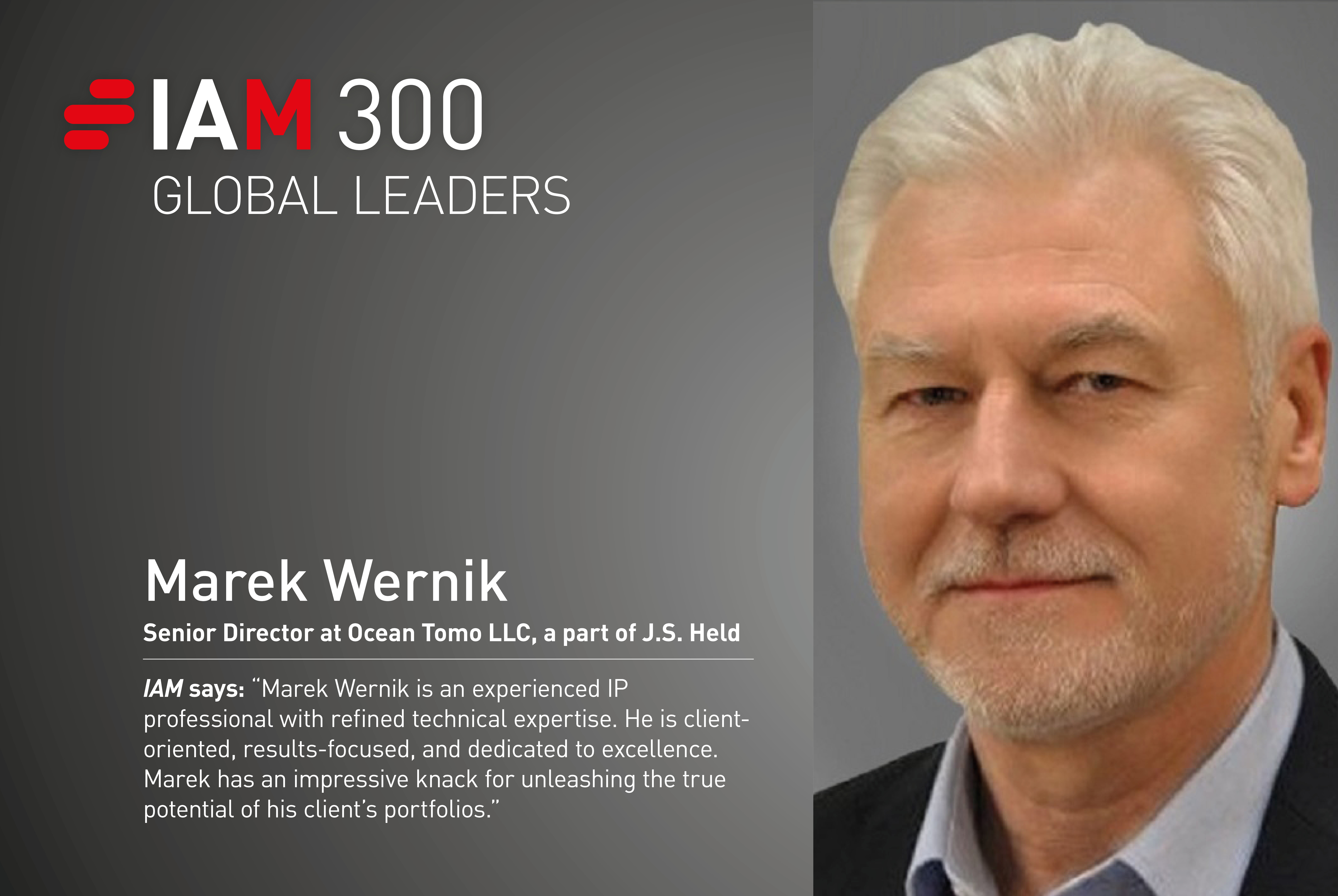Marek Wernik

You have an extensive background in intellectual property. What inspired you to pursue a career in this field, and what advice would you give to others considering a similar path?
During a pivotal stage in my career, I assumed an executive leadership role within a major corporation, tasked with shaping its future technology strategy. It became clear that crafting a robust technology strategy necessitated exceptional technology expertise, business acumen and a profound grasp of intellectual property. This role allowed me to work with a remarkable collection of engineers and business professionals and collaborate with accomplished patent attorneys, immersing me in the intricate legal framework of the IP industry. To excel in IP strategy, one must cultivate substantial experience across these four domains while vigilantly tracking the latest developments within each one. However, the paramount requisite is to assemble a team of professionals that are proficient in technology and IP matters, complemented by individuals who offer valuable business and strategic perspectives.
How would you characterise the US telecoms space at present, and what changes would you like to see?
The collapse of the US telecoms industry in the early 2000s sent shockwaves throughout the business world, setting a cascade of significant M&As in motion. These transformative events ultimately reshaped the industry's landscape, resulting in a notable shift toward stability. Today, the US telecoms sector comprises only a handful of formidable tier-one service providers, each wielding substantial influence and having a well-established cadre of system vendors serving them. As we peer into the future, it becomes clear that the telecom networking sector is poised for relative calm and consolidation, with limited activity in the realm of intellectual property.
In stark contrast, the mobile devices industry presents a different picture, marked by its remarkable diversity and the emergence of innovative players hailing from Asian markets. This field, which includes connected vehicles, is primed to retain its dominant position within the IP landscape. Further, the significance of intellectual property in cloud access, security and the broader telecom software arena is set to increase. In this shifting landscape, the intersection of telecommunications, mobile devices and software promises to define the next chapter and opportunities in the IP industry.
Over your 30-year career both in-house and as an independent expert, how have you seen the role of technical experts shift? What is driving that change?
The clients I have had the privilege to work with have been at the forefront of tech adoption and their needs have evolved differently due to the intricate nature of their products, supply chains and regions in which they operate. Our team has developed a unique specialisation that clients value highly, regardless of their geographical location or industry. This specialisation revolves around our ability to navigate and address the challenges posed by the applicability of intellectual property in advanced technologies, products and complicated supply chains. Our deep technical expertise and IP acumen always work in concert to handle intricate issues related to evidence of use through testing and reverse engineering. Given the increasing complexity of products and supply chains in today's global marketplace, the demand for such specialised expertise will continue to grow worldwide.
In the context of IP litigation, how is the technical expert role evolving?
The growing complexity of technology, products and supply chains is changing the role of technical experts, requiring them to go beyond their traditional role of providing expertise in a narrow technical area. A more comprehensive technical analysis is often critical to defining the value of the technology at issue in patent infringement and trade secret misappropriation matters. Better collaboration between technical experts and financial experts leads to a more accurate and supportable value conclusion. Building a team of technical experts that have deep technical knowledge of the specific technology area and the industry, standards and products into which the technology is incorporated (and that can support this expertise with evidence with the regard to the tech’s use) is essential. These technical experts must have experience in patent-claim interpretation in order to work in concert with IP experts to provide credible support for clients involved in litigation.
Marek Wernik
Senior Director
Dr Marek Wernik is a senior director for Ocean Tomo, a part of J.S. Held. He has over 30 years of combined technical knowledge, business acumen and IP experience. His technology and IP experience covers a broad range of areas, including all fields of telecommunications, wireless, mobile systems, IT systems, digital media and semiconductors. Before joining J.S. Held, Dr Wernik was senior executive at TechPats and earlier CEO of Global Intellectual Strategies.